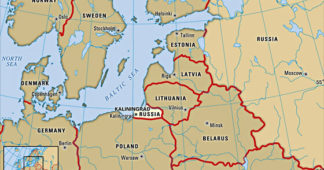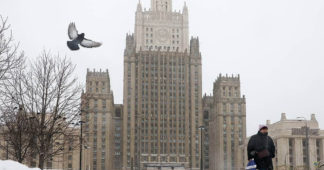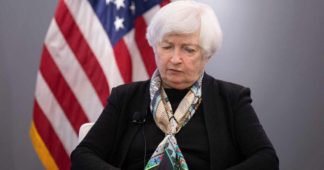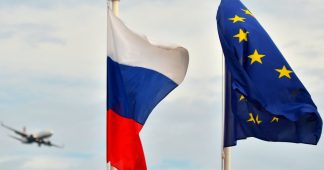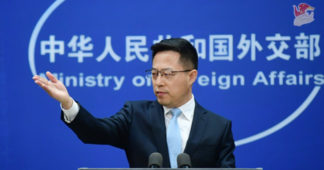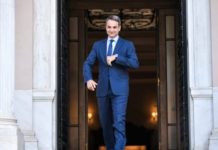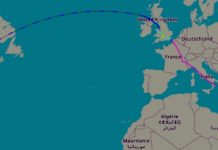d onPosted on
Finance ministers are the pangolins in the world of international diplomacy, solitary animals and predatory, unlike foreign ministers who are like glowworms, mesmerising and gorgeous animals that create light through their tail. While the US Secretary of State Antony Blinken attending G20 foreign ministers meeting in Bali a week ago staged a dramatic walkout when Russian Foreign Minister Sergey Lavrov rose to speak, Treasury Secretary Janet Yellen simply sat through the speech by Russian minister Anton Siluanov at the meeting of G20 finance ministers and central bank chiefs that began in Bali on Friday.
Indeed, Yellen said her piece — calling Russia’s war in Ukraine the “greatest challenge” to the global economy and all that — while Russian Deputy Finance Minister Timur Maksimov who was present, calmly listened. But a joint communique is unlikely, as the US is pressing G20 allies for a price cap on Russian oil, where consensus is lacking. All the same, the moderation in Yellen’s behaviour catches attention, as she realises, perhaps, that she no longer sets the global agenda.
Even a close friend of the US such as former Israeli foreign minister Shlomo Ben-Ami is advising that “Russia has generally managed to stem the tide” on Ukraine’s battlefield and a “similar shift in Russia’s favour may well be playing out geopolitically,” which would mean that “the consequences of remaining on the current path could prove far worse.”
Such voices of reason must be getting noticed in Washington. During the past week alone, Washington has shown willingness to “tweak” the western sanctions against Russia on three occasions in a direction that addressed Moscow’s concerns.
The latest one is with regard to the food crisis where Russia and Ukraine have reached an agreement, whereby Kiev will remove the mines in the waters around its southern ports so that a “grain corridor” opens toward the Bosphorus. Meanwhile, Washington has notified international banks, shipping and insurance companies that the western sanctions are not applicable to Russia’s exports of food grains and fertiliser to the world market.
Again, a potentially explosive situation arose when on June 18, Lithuania blocked the transit of Russian goods to and from the exclave of Kaliningrad. After Moscow’s furious protests and warnings of retaliation, the European Commission published a revised decision on July 13 in “a display of realism and common sense,” as the Russian Foreign Ministry spokesperson put it.
According to the EU guidelines, the rail transit of oil and petroleum products, coal, steel and iron, wood, cement, and other non-military goods to Kaliningrad will not be prohibited under the sanctions. It is inconceivable that EU acted without consulting Washington, who likely intervened to defuse the potentially dangerous confrontation.
Similarly, on July 11, the US state department spokesman acknowledged that Washington favoured a sanctions waiver by Canada that would enable Siemens to transfer an urgently needed turbine for the operation of Gazprom’s Nord Stream gas pipeline to Europe, so that Germany’s energy situation will not worsen.
In each of the above three situations, Washington’s stance is to not allow the present confrontation between Russia and Europe aggravate further. Washington must be acutely conscious that the war fatigue in Europe is a compelling reality. The farmers’ protests in the Netherlands have quickly spread across Europe.
The UK prime minister Boris Johnson may have stepped down from a political implosion of his own making, but it was also a process rather than an event, and the state of the British economy teetering on the brink of recession was a major factor. Italy’s government is now on the verge of collapse and, again, the measures to offset the cost of living crisis became a focal point for tensions brewing within Prime Minister Mario Draghi’s broad coalition.
When it comes to Germany, Europe’s powerhouse, all bets are off. The feasibility of reviving nuclear power generation; inflation and the most effective ways to fight it; rising prices; energy security crisis; looming industrial shutdowns and large-scale reduction in employment — these have exacerbated inter-party disagreements within the coalition government headed by Chancellor Olaf Scholz and steadily eroded public support.
The internal disagreements on key issues are affecting the government’s decision-making and shredding the coalition cabinet’s reputation apart. The British Telegraph reported yesterday, “Once admired and envied, Germany is now the textbook example of how much damage a misguided foreign and energy policy may do.”
The newspaper underlined that Scholz is trying to please both the NATO countries and Russia, while ‘no one respects him’ and there are few options for further developments. Its forecast: “Either Berlin will suffer a massive setback, accompanied by the collapse of the ruling ‘traffic light’ coalition, or it will capitulate to Putin.”
Indeed, Moscow is tightening the screws. Gazprom warned on Wednesday it could not guarantee the functioning of “critical” equipment for the Nord Stream 1 gas pipeline despite Canada’s decision to return an essential turbine after it was repaired.
Yet, there was a time not too long ago when Putin forecast that Germany would be the world’s next superpower. Germany is indeed paying a very high price for toeing the US’ belligerent line towards Russia. The Greens in Scholz’s coalition, in particular, pushed the envelope. Today, Washington has no solutions to offer as German economy is on the verge of collapse due to the blowback from sanctions against Russia.
The galling truth is that, as China Daily noted, “On the European debt crisis of 2011, Germany, with a sufficient supply of Russian energy thanks to the stable relations with Moscow maintained by then chancellor Angela Merkel, acted as the saviour of the European Union… Will Germany be able to save the EU this time? ”
To be sure, the Biden Administration understands that the Western alliance is facing the moment of truth. The “tweaking” of the sanctions thrice this past week conveys something.
The influential Russian daily Izvestia wrote on Wednesday that the settlement over the “grain corridor” across the Black Sea can create the ambience for resumption of peace talks between Kiev and Moscow. The daily quoted Ivan Abramov, deputy chairman of the Federation Council (upper house of parliament) committee on economic policy, as saying,
“Of course, now any agreements can bring positions closer. There have been shifts in Kaliningrad. Perhaps the success of the negotiations on grain will be an incentive for the resumption of peace talks with Ukraine. However, Kyiv should be ready for this.”
Abramov hinted that President Putin and Turkish counterpart Erdogan may discuss new peace talks at their upcoming meeting in Tehran on Tuesday. The Deputy Chairman of the State Duma (lower house of parliament) Committee on Economic Policy Artem Kiryanov also told Izvestia that in order to stop the special military operation in Ukraine, the conditions declared by Moscow must be met, but Kiev instead appears to be inclined to rely on the supply of Western weapons rather than sit down at the negotiating table.
Against this backdrop, Russian Defence Minister Sergei Shoigu has paid an “inspection visit” today to the command post of the Southern and Central groups of the Russian armed forces, which are spearheading the special military operations in Ukraine, to be briefed by the army commanders about “the current situation, the action of the enemy and the progress of combat tasks fulfilment”.
The MOD press release stated that Shoigu “gave necessary decrees for intensifying the action of the groups of troops on all fronts in order to prevent massive missile and artillery attacks launched by the Kiev regime at civilian infrastructure facilities, population of Donbass and other regions.” Shoigu’s focus was on the consolidation of the military gains rather than new offensives.
Published at www.indianpunchline.com
We remind our readers that publication of articles on our site does not mean that we agree with what is written. Our policy is to publish anything which we consider of interest, so as to assist our readers in forming their opinions. Sometimes we even publish articles with which we totally disagree, since we believe it is important for our readers to be informed on as wide a spectrum of views as possible.
